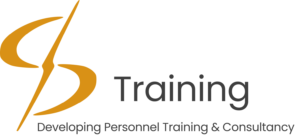In the fast-paced and dynamic landscape of the professional world, success extends far beyond technical know-how. Enter the realm of soft skills – the intangible attributes that shape individuals into well-rounded professionals. As we embark on a journey to explore the transformative power of these skills, we dive into their definition, recognise their paramount importance in professional development, and unveil the pivotal role played by VET (Vocational Education and Training) courses in cultivating these invaluable traits.
Definition of Soft Skills: Unveiling the Art of Professionalism
Soft skills, often referred to as “people skills” or “interpersonal skills,” go beyond the realm of technical expertise. They encompass a spectrum of personal attributes and communication abilities that enhance one’s interactions, relationships, and overall effectiveness in the workplace. From the finesse of effective communication skills to the agility of adaptability, soft skills form the nuanced foundation that elevates an individual from a proficient worker to an exceptional professional.
Understanding Soft Skills
In the intricate tapestry of professional success, technical proficiency is just one thread. What truly weaves the masterpiece is the harmonious blend of soft skills – the unsung heroes that elevate an individual from competence to brilliance. Let’s unravel the melody by diving into the key soft skills that orchestrate excellence in the professional sphere.
1. Effective Communication Skills: The Art of Connection
Communication is more than words; it’s the bridge that connects minds. In the professional arena, effective communication goes beyond mere conveyance – it involves active listening, articulation, and the ability to convey ideas with clarity. Mastering this skill is not just about delivering a message; it’s about fostering understanding and collaboration and creating a cohesive work environment.
2. Teamwork and Collaboration: The Strength of Unity
The symphony of success is often composed by a team, not a solo act. Teamwork and collaboration are the heartbeat of a thriving workplace. The ability to seamlessly work with diverse personalities, leverage individual strengths, and contribute to a collective goal is a soft skill development that transforms professionals into valuable team players. It’s about recognising that success is a collective endeavour, and each note played contributes to the harmony.
3. Problem-Solving and Critical Thinking: The Architects of Solutions
In the ever-evolving landscape of the professional world, problem-solving and critical thinking stand tall as pillars of strength. Soft skill development in this realm involves the ability to analyse situations, think creatively, and devise effective solutions. Professionals equipped with these skills don’t merely tackle challenges; they view them as opportunities for innovation, growth, and continuous improvement.
4. Adaptability and Flexibility: Navigating the Winds of Change
Change is constant, and those who can adapt and thrive in dynamic environments possess soft skills, and that are invaluable. Adaptability and flexibility involve embracing change with an open mind, adjusting strategies on the fly, and navigating uncertainties with resilience. Professionals who embody this skill set are not daunted by change; instead, they see it as a chance to evolve and stay ahead in their professional journey.
5. Time Management and Organisation: The Conductors of Efficiency
In the symphony of a professional’s day, time management and organisation take centre stage. Soft skills in this realm involve prioritising tasks, setting goals, and efficiently utilising time and resources. Professionals who excel in time management aren’t just punctual; they are conductors of their own efficient orchestra, ensuring deadlines are met, and projects are delivered with precision.
Communication Skills
In the dynamic landscape of the workplace, effective communication isn’t just a skill; it’s the cornerstone of success. Let’s unravel the significance of effective communication skills, explore how VET courses embrace this vital soft skill, and dive into the practical world of exercises and simulations that transform learners into adept communicators.
- Importance of Effective Communication in the Workplace
Effective communication skill is the currency of collaboration, the heartbeat of productivity, and the linchpin of a thriving workplace. In a world where diverse teams collaborate across borders and innovation hinges on seamless interaction, the ability to communicate with clarity, empathy, and precision is non-negotiable. From conveying ideas persuasively to active listening that fosters understanding, effective communication fosters a positive work culture, minimises misunderstandings, and propels projects toward success. It’s the conduit through which ideas flourish, teams harmonise, and leaders inspire.
- Specific Soft Skill Modules in VET Courses
VET courses recognise that technical expertise alone doesn’t guarantee professional triumph – effective communication is the secret sauce that transforms knowledge into impact. Soft skill modules within VET courses are curated with precision, acknowledging the multifaceted nature of communication in the professional arena. These modules delve into various facets, including verbal and non-verbal communication, written expression, and the art of adapting communication styles to diverse audiences. VET courses ensure that learners not only grasp the theoretical underpinnings but also apply these skills in authentic workplace scenarios.
Exploring Top VET Courses
Vocational Education and Training (VET) courses serve as gateways to practical skills and industry-ready expertise. Let’s delve into the world of some of the best VET courses, each tailored to equip individuals with the specific skills demanded by diverse sectors.
The Community Services Course at DP Training stands as a beacon for individuals passionate about making a positive impact on society. Geared towards nurturing empathy and understanding, this course delves into areas such as social work, counselling, and community development. It equips learners with the skills to address societal challenges, advocate for social change, and provide support to individuals and communities in need.

In the ever-evolving healthcare landscape, the Health Services Course in DP Training takes centre stage. Tailored for those aspiring to contribute to the well-being of others, this course spans areas like nursing, aged care, and allied health. It provides hands-on experiences, ensuring graduates are well-prepared to navigate the complexities of healthcare delivery, patient care, and the dynamic nature of the medical field.

For those fascinated by the intricate dance of supply chains and logistics, theTransport & Logistics Courses on DP Training are tailor-made. These courses delve into the efficient movement of goods and services, covering areas like logistics management, warehousing, and transport operations. Graduates emerge with a deep understanding of the logistical challenges faced by industries and the skills to ensure smooth operations in the fast-paced world of transportation.

Providing training and education on mental health and wellbeing is an investment in the resilience of community service workers. Equip them with the tools to recognize and manage stress, cultivate emotional intelligence, and foster a work culture that values open communication about supporting mental wellness.

Problem Solving and Critical Thinking
In the ever-evolving landscape of the professional world, success doesn’t merely hinge on knowledge; it thrives in the minds adept at problem-solving and critical thinking. Let’s unravel the art of nurturing analytical skills through VET programs, explore the immersive world of case studies and practical exercises, and venture into the realm of encouraging creative solutions and innovations.
VET programs stand as beacons for sculpting professionals not just equipped with technical know-how but armed with the analytical prowess to tackle real-world challenges. The nurturing of analytical skills within these programs goes beyond textbooks. It involves cultivating a mindset that thrives in ambiguity, excels in dissecting complex issues, and approaches problem-solving with a strategic lens. VET programs recognise that analytical skills are the compass guiding professionals through the intricate maze of challenges in the professional world.
Adaptability and Flexibility
In the dynamic realm of the professional arena, adaptability and flexibility are not just survival skills; they are the wings that allow individuals to soar amidst industry changes and technological advancements. Let’s uncover the art of adapting to the ever-evolving landscape, explore the diverse work environments within VET training, and understand how learning from varied perspectives becomes the cornerstone of flexibility.
- Adapting to Industry Changes and Technological Advancements
The professional landscape is a stage where change is the only constant. VET programs recognise that adaptability isn’t a mere skill; it’s a mindset that embraces industry shifts and technological leaps. Learning to adapt involves staying current with trends, being open to acquiring new skills, and understanding that what worked yesterday might need a fresh approach tomorrow. VET programs serve as incubators where learners not only gain technical proficiency but cultivate the resilience to navigate the dynamic waves of their chosen industries.
- Exposure to Various Work Environments in VET Training
VET training goes beyond the confines of classrooms; it’s an odyssey that exposes learners to the rich tapestry of work environments. From bustling corporate offices to hands-on industrial settings, VET programs offer a spectrum of experiences. This exposure is the crucible where adaptability is forged. Whether navigating the intricacies of a fast-paced startup or embracing the structured environment of a traditional corporation, VET learners gain insights that make them chameleonic professionals ready to thrive in any work setting.
Conclusion
In this conclusion, let it be a reminder that knowledge is not static; it’s a dynamic force that propels us into realms unknown. The insights gained today serve as stepping stones, not conclusions. As we step into the next chapter of our collective journey, may the spirit of curiosity guide us, and may the pursuit of knowledge continue to illuminate the path toward a richer, more profound understanding of the world around us.

